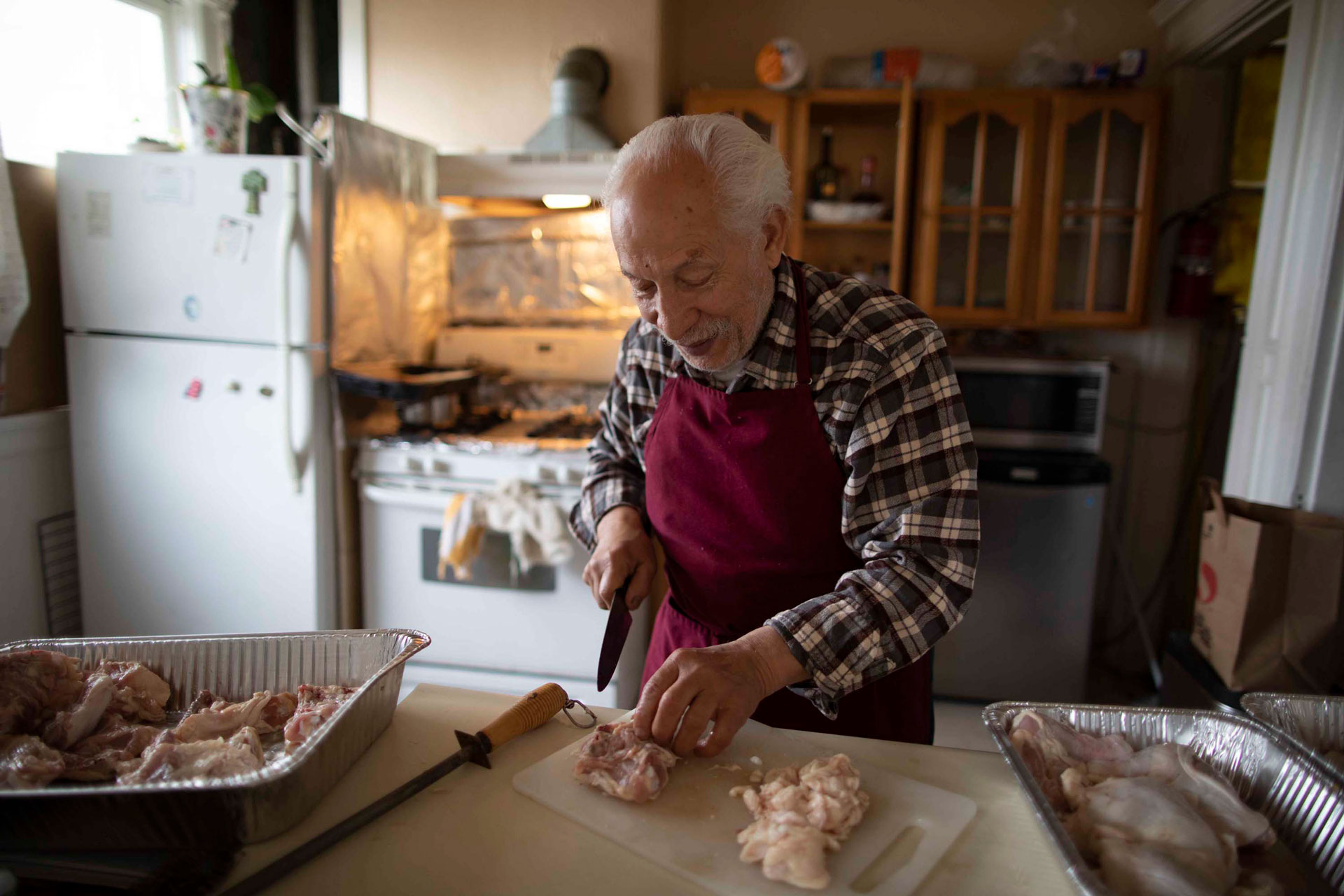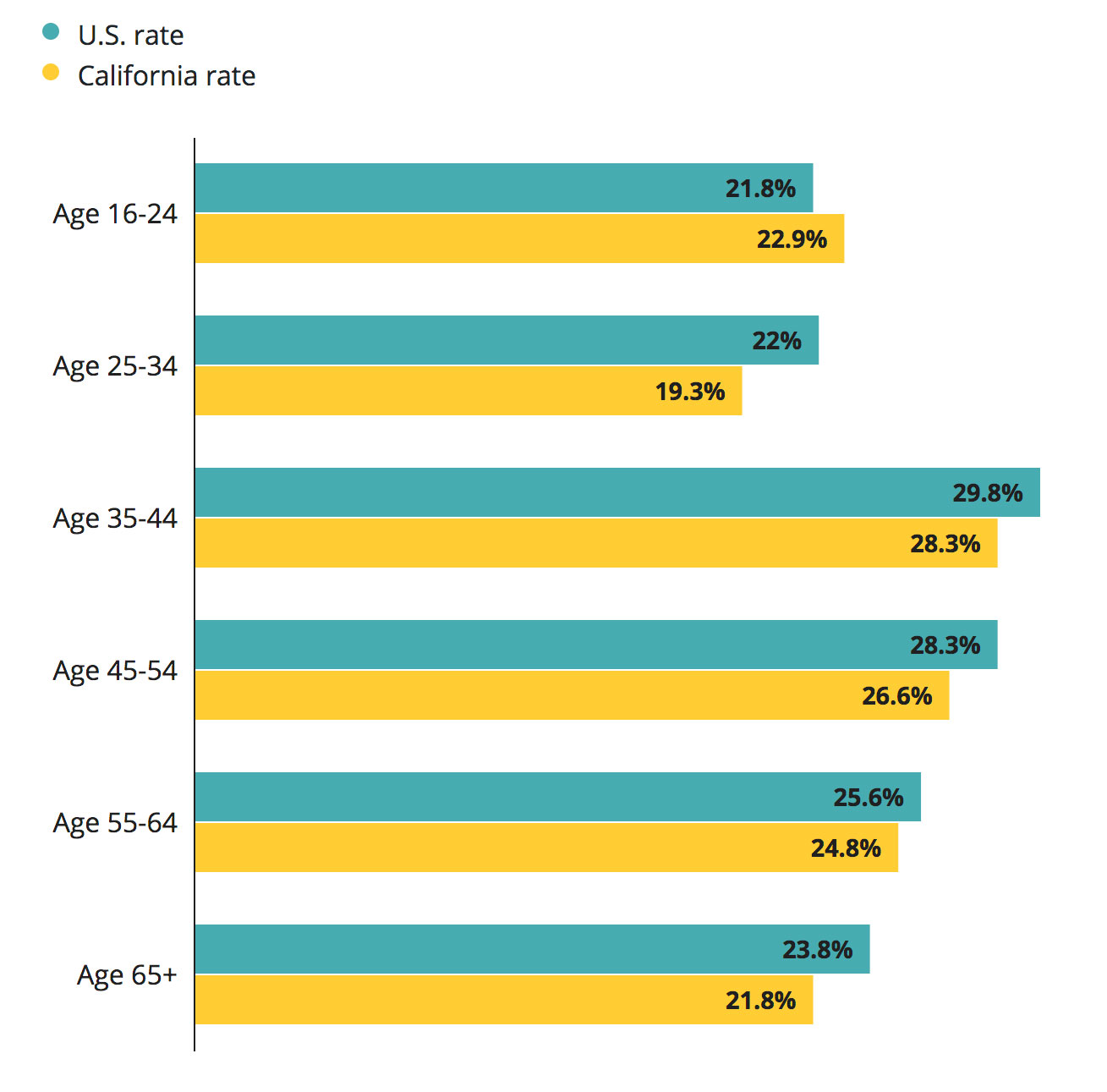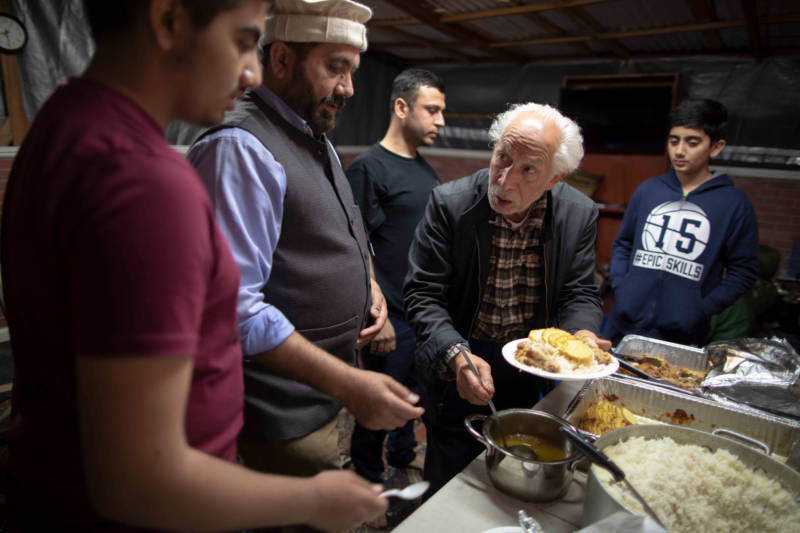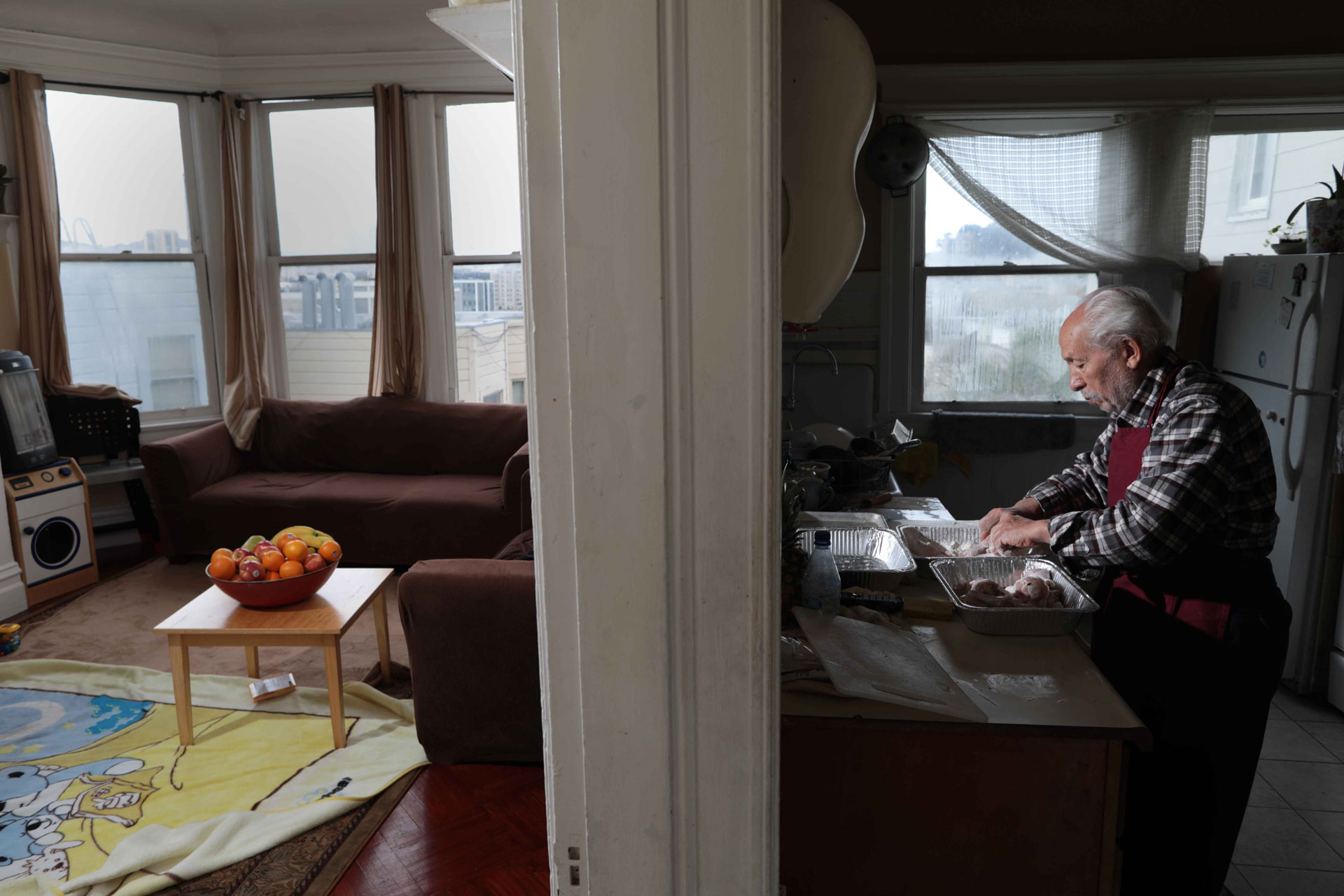In his small kitchen, Emam Saber, 77, picks up a raw New York strip steak with a fork and gently lays it in a pan of steaming hot oil. The meat sizzles loudly—the first of 30 steaks he will be cooking that afternoon for a charity event.
"I always cook for charity. I don't charge anything," said Saber, a former chef who worked at iconic hotels and a French restaurant in San Francisco.
Now in retirement, Saber pays for his food donations with his $660 Social Security check and the income his wife, Hewida, 55, earns from running a daycare out of their apartment.

Since arriving in San Francisco in 1969 from his native Egypt, Saber has regularly cooked meals for people at local mosques, nonprofit organizations, churches and schools.
Volunteering often can provide older adults with a sense of purpose and connection to others that is linked to physical and emotional health benefits, especially after they’ve left the workforce, according to a review of research by the Corporation for National and Community Service, a federal agency. Likewise, communities can greatly benefit from the accumulated skills and experience that a growing pool of retirees in California offer, experts say.
About 6 million senior citizens — ages 65 and older — live in California, more than in any other state in the nation. That population is expected to increase rapidly over the next 10 years as baby boomers age.
Serving others brings joy to Saber, who admits he suffers from arthritis and knee pain. But around the kitchen, the retired chef forgets his health issues and moves with agility and precision — trimming fat off meat with a butcher knife and cooking a vegetable stew in a big aluminum pot.
"I love cooking," said Saber. "And I like to help my community. I’ve been doing that for 50 years, and I hope I'll do that until I die."
California's Volunteerism Trails National Rates

Elderly Californians who are not working or seeking employment have one of the lowest volunteer rates, attributable to shrinking social networks, fixed incomes and declining health, according to the 2017-21 California Plan on Aging. About 22 percent of seniors donate their time compared to nearly 30 percent for people ages 35 to 44, the state report finds.



